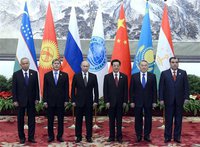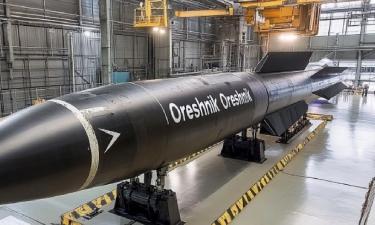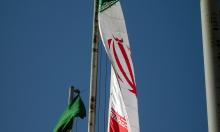Putin won't let Arab Spring in
Vladimir Putin has started implementing his plan to establish the Euroasian Union. His visit to China and the summit of the Shanghai Cooperation Organization (SCO) that took place on June 4 - 7 were very important. The countries also agreed on action to ensure regional security with regards to the new "defensive" strategy of U.S. and NATO withdrawal from Afghanistan.

China that has 4.5 thousand kilometers long land border which Russia, last year became Russia's chief trading partner, surpassing the volume of turnover with Germany (85 billion). The priorities of the Russian government aimed at economic development of Siberia and the Far East, and in this process, it is logical to expect investments of an economically powerful China. In addition, Russia is looking for ways to diversify their supplies of raw materials to the east, especially when the demand for them of the main consumers in Europe falls.
Now let us look at China's position. Russia is only on the tenth place among its trading partners and minimum as the energy supplier. China, until recently, despite the bravura statement of its leadership on a strategic partnership de facto distanced itself from Russia. China voted in the UN Security Council on Syria (and not only) in a similar way to Russia, but not for allied reasons. Beijing seeks to prevent a dangerous precedent that could potentially be repeated in its troubled western territories - in Tibet and Xinjiang, and it is not interested in the problems of Russia in the Middle East. Beijing has always stressed its extreme displeasure with the fact that Russia is selling arms to Vietnam and India. Until recently, the Chinese government stuck to its favorite shadow position, filling up the Russian market (as well as others) with cheap consumer goods.
However, the situation has changed dramatically after the publication of President Barack Obama's new U.S. defense strategy in which the Asia-Pacific region was declared a "major area of focus of national interest." Last week, U.S. Defense Secretary Leon Panetta has announced that 60 percent of the U.S. Navy will be focused in the region. When in mid-April China was on the brink of war in a conflict with the Philippines around the island Huanyan, the Chinese government appealed to Russia for help.
Assistance was provided in the form of joint naval exercises in the Yellow Sea, held in parallel with the opposition of the U.S. Navy and the Philippines in the East China Sea. At a meeting with President Hu Jintao, Putin said that such support will continue. If we consider that in addition to Russia Beijing has territorial claims to all the neighbors, many of which have mutual defense treaties with the U.S., a deterrent factor in the form of Russian assistance could be crucial.
"Both countries are undergoing a critical stage of development, they face problems against a background of increasing uncertainty in the world. And we need to support each other in regional and world affairs, providing for a peaceful global processes," said President Hu. Vladimir Putin, for whom this is the eighth in 12 years visit to China, said that China is not only a "good friend" of Russia, but "a good partner at the global level" - the newspaper China Daily quoted both politicians. If Putin can implement a plan for the integration of the Eurasian space, the global balance in the world will change dramatically. Joint projects - BRICS and the SCO are working towards the same goal.
The summit of the SCO (Russia, China, Kazakhstan, Uzbekistan, Tajikistan and Kyrgyzstan), was held after the bilateral meeting. It is significant that for the first time Afghanistan that was granted an observer status was invited as a guest. The countries are preparing for withdrawal of NATO troops from Afghanistan in 2013 and it is clear that they will have to solve the issues associated with threats from "Taliban" and drug-related crime together.
"All of the SCO countries note the importance of combating the drug menace. The success in this direction can be achieved by creating a SCO-stop center to combat terrorism, drug trafficking and organized crime. The SCO already has an organization for anti-terrorism, it is possible to make this a universal organization," said Putin. The parties signed an important document at the meeting - "The mechanisms of response to situations that threaten stability in the region." Russian TV channel "Vesti" reported that the leaders agreed on the ways to act in a case of a hypothetical threat of "Arab spring" in Central Asia. It was suggested to accept Iran as the SCO permanent member after the change of statutory provisions that preclude membership of countries that are subject to UN sanctions.
At the bilateral level, China and Russia signed over a dozen of major commercial contracts, including the creation of billions of dollars of investment funds. The goal is to increase bilateral trade to 100 billion dollars by 2015. Among the projects that Putin has described as "important" is construction of two nuclear power plants in China.
Of course, there are differences between the two strongest players in the world. Moscow is unhappy with the desire of the Chinese to copy Russian military equipment. Beijing is not satisfied with the investment climate in Russia, and it is not alone in this regard. There are disputes about the price of gas that Russia wants to sell to China. Gazprom links the gas price to oil prices as it does in Europe, while China insists on lower prices - same as what it pays its Central Asian suppliers. However, a compromise will be found, because it is a long-term project. If the "Gazprom" and the China National Petroleum Corp. agree, the supplies will start in 2015 after completion of construction of "Altai" pipeline.
Some differences are invented in the West, and stubbornly regurgitated by some Russian media. This applies above all to the myth that all of Primorye was sold to the Chinese and that the Far East has more Chinese than Russians residents. Indeed, Chinese businesses invest in the Far East, lease the building (instead of buying them), but why are the Chinese businesses unlike any other? The Chinese are working in the Maritime region, but they have a quota, and there are fewer of them than migrants from the CIS countries. In addition, in Primorye many residents in the age of 20 have never been in distant Moscow, but visited the neighboring China three or four times. The Russian diaspora in China over the past 15 years has grown 12-fold, and most of this growth was provided by residents of Primorye. This is a natural and mutually beneficial process.
Lyuba Lulko
Pravda.Ru
Subscribe to Pravda.Ru Telegram channel, Facebook, RSS!




